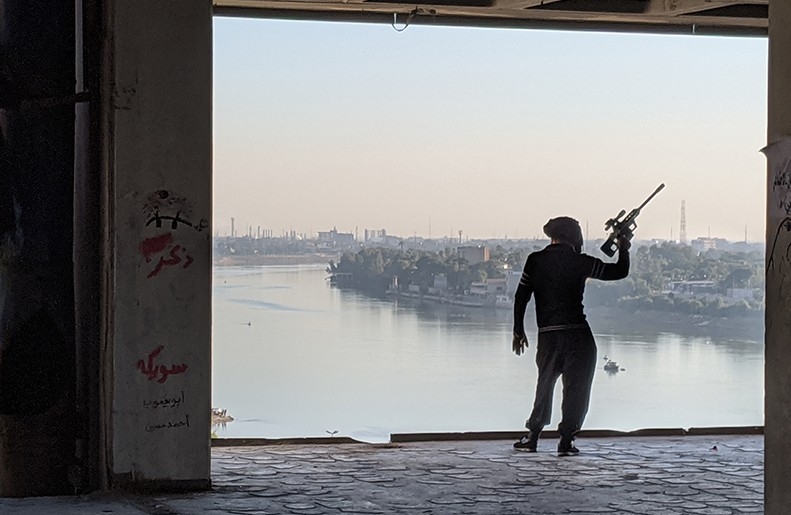Date & time
3 p.m. – 5 p.m.
Registration is closed
Registration is closed
Omar Dewachi
This event is free
Online

Building on ethnographic research on wounds and the ecologies of war and health care in Iraq and across the Middle East, this talk explores the rise of Iraqibacter, a moniker given to Acinetobacter baumannii — a superbug associated with the invasion and occupation of Iraq in 2003.
Tracing the histories and geographies of this “superbug” across the landscapes of war injury, Omar Dewachi will show how unravelling ethnographic and microbiological knowledge about antimicrobial resistance reveals deeper entanglements of this killer superbug in the political, biosocial and environmental manifestations of long-term Western interventions and present-day conflict fallout across the region. Building on the notion of biology of history, the registration of human activity in bacterial life, Dewachi suggests that Iraqibacter could be understood as an archive of the changing ecologies and toxicities of war in Iraq and beyond.
Omar Dewachi is an associate professor of anthropology at Rutgers University and is the co-founder of the Conflict Medicine Program at the American University of Beirut. Trained in medicine and anthropology, Dewachi’s research analyzes the social, medical and environmental impacts of decades of war and violence in Iraq and the broader Middle East.
He is the author of Ungovernable Life: Mandatory Medicine and Statecraft in Iraq (winner of the New Millennium Book Prize from the Society for Medical Anthropology in 2019). The book documents the untold history of the rise of state medicine under decades of British and national rule, and the ultimate unraveling of health care infrastructure and the exodus of Iraq’s medical doctors under decades of U.S. interventions and violence in the country.
He has authored numerous reports and publications that have appeared in medical, anthropological and global health journals, including The Lancet. His forthcoming manuscript When Wounds Travel: Ecologies of War and Survival East of the Mediterranean chronicles close to ten years of ethnographic research and public health practice in the Middle East. Working towards an anthropology of wounding, the study explores the different physical and social experiences of the “wound,” and its entanglements in the thickness of social relations of healthcare, displacement and unravelling of health care infrastructure across Iraq, Syria and Lebanon.
© Concordia University